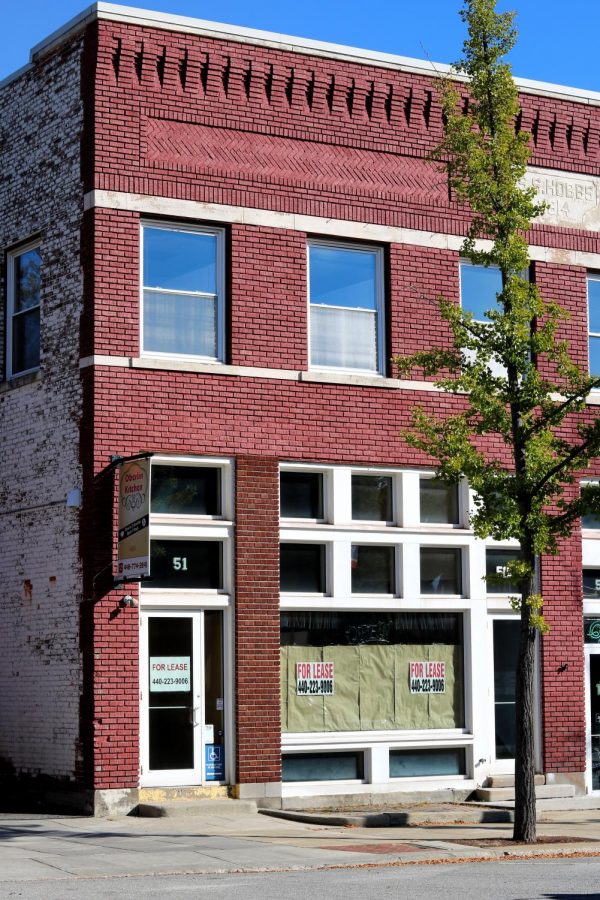American Rescue Plan Act Funds Community Improvement
The City of Oberlin recently received over $400 thousand from the American Rescue Plan Act to implement COVID-19 relief programs and improve city infrastructure.
Oberlin City Council has begun discussions on how best to allocate the first tranche of funds from the American Rescue Plan Act, which President Joe Biden signed into law on March 11 to assist the nation’s COVID-19 recovery. The City received $429,426.97 through ARPA at the end of June. In its Oct. 4 meeting, City Council discussed possible social and economic programs that the money could be directed toward. The Council’s proposals will be reviewed by the City’s Law Director, Jon Clark, and ratified in the next year.
The City will receive the second tranche of funds in summer 2022. The City will allocate its ARPA funding to address the ongoing negative impacts of the COVID-19 pandemic. However, City Manager Rob Hillard explained that the funds must be spent according to the federal government’s regulations.
“There are five areas that the funds can be spent on — everything from public health expenditures, needs to address negative economic impacts, replacing lost public sector revenue, providing premium pay for essential workers, and finally, investing in water infrastructure,” Hillard said.
Within these five designated areas, the City Council discussed possible expenditures and found four particular interest areas — the formation of a grant program to assist small businesses negatively impacted by the pandemic, maintenance of the Oberlin Connector, improvements to the City’s water infrastructure, and the creation of a Social Equity Coordinator.
According to Hillard, the Social Equity Coordinator would help implement the City’s evolving social equity plan. A working group of community and Council members have been busy with the plan since March 2020.
“The City is in the process right now of putting together a social equity plan,” Hillard said. “Much of that work focuses on assisting individuals and workforce development, transportation, recreation, and other critical needs. Also, housing is another bigger issue in our social equity plan that we’re developing, so if there’s a coordinator, that coordinator can help prioritize that.”
Hillard also discussed improvements to the Oberlin Connector, a transportation service for those who have been adversely impacted by the public health emergency. The City recently expanded the service to provide transportation five days a week to the greater Oberlin area.
“It’s basically a response bus service that the City partners with Lorain County on,” Hillard said. “So we’ve expanded the service. The question being offered to the Law Director is if we can continue to do that.”
City Council President Linda Slocum acknowledged that although the funds are regulated by the federal government, the City has more flexibility in their allocations than with previous federal relief efforts. According to Slocum, this allows the City to address longer-term projects, such as improvements to the City’s water infrastructure.
“Unlike the [Coronavirus Aid, Relief, and Economic Security] Act money, this one has a little longer to spend and to account for how we’re spending it,” she said. “So, in my view, we can take a broader overview of maybe putting in some relief that’s more long-lasting. For example, one of the permitted uses for this is wastewater infrastructure, so we can perhaps take this opportunity to look at that system.”
The final interest area that the City Council proposed is a grant program that would aid Oberlin’s small businesses that are continuing to cope with the economic pitfalls associated with the COVID-19 pandemic.
According to Janet Haar, executive director of the Oberlin Business Partnership, the impact of the pandemic on Oberlin’s businesses varied. Though available relief programs aided many businesses across the downtown area — and some new businesses even opened up — others struggled and were forced to close.
“Obviously, the whole pandemic has been very challenging for our businesses, especially our smaller micro-businesses,” said Haar. “We had some businesses go out of business, and we still have two empty restaurant locations — the Oberlin Kitchen location and the Black River Cafe — but we’ve also had five new businesses open who just kind of decided it was the time to do it. … There’s a scale of how businesses have been able to actually come out of this and enter what some people call the ‘new normal,’ which I call the ‘now normal.’”
Krista Long, owner and operator of Ben Franklin and MindFair Books, stated that her businesses were very fortunate to receive support from the community. Yet, since the pandemic, she has witnessed a diminishing interest in supporting local businesses.
“The one thing that has also proven to be a real challenge is people — and especially college students — have gotten really used to Amazon delivery, and all those kinds of online competitors that we are really not able to compete against,” Long said. “While the town and the student body do support us, and many people are aware of this issue and are deliberate in their support, it’s still a transition that’s happening away from brick and mortar stores to online shopping. … My concern is what it does to communities. When we stick together as a community and support each other, then we survive and thrive. When we don’t think of the place that we live as the community that we need to stay connected with, learn about, and support, then that’s a real damage to — I hope it’s not an overstatement to say — our democracy.”






